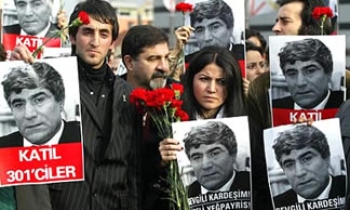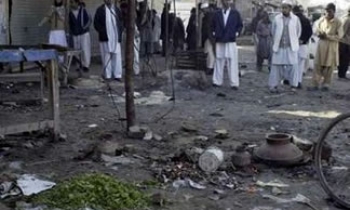Muslim students are upset by the Badger Herald newspaper's decision to reprint one of the notorious cartoons mocking the Prophet Muhammad.
Muslim students at UW-Madison have met with campus officials, are planning a campus forum on Tuesday, and are considering whether to stage protests.
The cartoons, originally published in a right-wing Danish newspaper in September, have sparked worldwide demonstrations, including violent clashes with police in countries such as Afghanistan and Pakistan. Most American newspapers have decided against printing the cartoons.
But after a University of Illinois newspaper was criticized for republishing the cartoons, the editorial board at the Badger Herald decided to stand in solidarity with that newspaper, said Mac VerStandig, the newspaper's editor-in-chief.
The Badger Herald printed the cartoon, which shows the image of the Prophet Muhammad with a bomb as his turban, on its editorial page in Monday's edition. It was accompanied by an editorial that stated "the cartoons in question are clearly newsworthy and it is our firm belief that the media ought not be a gatekeeper guided by prude censorship, but rather a vehicle of facilitation in the grand marketplace of ideas."
VerStandig said the image is clearly offensive, but it didn't make sense that publications were reporting on the protests and violence that the cartoon sparked, but were not showing their readers the actual cartoons.
"There's the old cliche, images speak louder than words," VerStandig said. "It's the most difficult decision I've made since becoming editor of the paper, but one I stand behind."
Muslim students on campus were outraged after seeing the cartoon on Monday, said Babar Basir, president of the Muslim Students' Association at UW-Madison. Many were also upset last week when the Badger Herald published an original cartoon that incorporated the controversial image.
"They just wanted to test the limits," Basir said. "You don't see the consequences of something like this unless you walk in Muslim shoes."
The Muslim Student Association met with Interim Dean of Students Lori Berquam on Tuesday, who passed along her thoughts to Chancellor John Wiley, who was out of town. Wiley sent out a long response to the publication of the cartoon late Tuesday. In his response, Wiley acknowledged the controversial choices the editors made and the "indignation and revulsion" that has followed, but declined to take the paper to task.
Passionate letters to the editor poured into the Badger Herald, with many of them displayed on the newspaper's Web site.
There are two events being organized in response to the publication. The Dean of Students office is organizing a forum for Tuesday to discuss the cartoon, including an expert on Islam, a journalism professor and representatives of the Muslim Students Association and the Badger Herald. It will be at 7 p.m. in Room 272 Bascom Hall.
The association is also sponsoring an art exhibit about the life of the Prophet Muhammad on Wednesday from 9 a.m. to 4 p.m. at the Memorial Union.
As for public demonstrations, "We're still thinking about everything, let's see how it goes," Basir said. "A lot of this is just due to ignorance. We'll just try to combat this ignorance with education, just to explain to people what Islam is about, and let them see for themselves."
James Baughman, director of the UW-Madison School of Journalism and Mass Communication, said if it were up to him, he wouldn't have run the cartoon because it is offensive to a lot of people. But he said it does serve a purpose in sparking a civic debate.
"I thought they showed a lot of guts running it," Baughman said. "The Herald has, for a long time, been a real champion of free speech. For a lot of people, this is an acid test."
James Danky, a UW journalism school lecturer, said the editorial that accompanied the cartoon was eloquent and well thought-out. But he said the students didn't need to reprint the cartoon to make that point, and noted it was widely available on the Internet if people wanted to find it.
"Student journalists are exactly that," he said, emphasizing that they are students. "They're young and less experienced and passionate and do many interesting things. But it doesn't mean they don't make mistakes."
E-mail: anathans@madison.com









